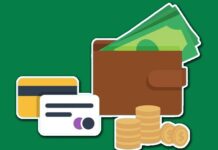Paying off your mortgage can be difficult but most times worth it, but what happens when you pay off your mortgage? You will gain full ownership of your home. After paying off your mortgage, you get to avoid excess interest rates as well as face a lower risk of losing your home if you default on the loan.

Completing your mortgage payment is a huge financial breakthrough most borrowers dream of. It comes with benefits such as lower interest rates, no late fees. And even a positive impact on your credit score. While this is good, you can pay off your mortgage loan by paying a larger amount on monthly payments, refinancing, and even considering other methods to pay off the mortgage.
After you pay off your loan, your lender or loan servicer will provide documents that show your loan repayment proof as well as hand over ownership of the home. Aside from these, there are other things you need to know about what happens when you pay off your mortgage.
What Happens When You Pay Off Your Mortgage
After you pay off your mortgage, different things will happen. You will need to prepare yourself for:
Collect Different Documents from Your Lender
You will receive paperwork from your lender or loan servicer that confirms that you have completed your loan payment and your mortgage obligation will be formally released.
Modernize Your Homeowners Insurance Policy
Ensure you inform your homeowners’ insurance to remove your mortgage company from your insurance policy. This is done by the removal of the mortgage clause. This authorizes them to be reimbursed if eventually the home is damaged or destroyed.
Make Preparation for Paying Local Property Taxes
Because your lender is no longer responsible for your property tax payment. This is drawn from your escrow account, you will now be responsible for paying your property taxes. Ensure both you and your accountant get notifications concerning the tax amount and due dates from your state.
Create a Note to Notify Your Accountant About Tax Season
You will no longer have mortgage interest that will no longer be deducted on your tax return.
Monitor Your Credit
Keep an eye on your credit score after your mortgage loan is removed from your credit record. This is because your credit score may be affected and may drop slightly. You may also need to update your financial information on every credit card account, stating that you no longer have a loan to repay.
How Does Paying Off Your Mortgage Affect Your Credit?
Paying off your mortgage fully generally does not affect your credit score but may cause your credit to drop slightly after the mortgage is removed. This is because of a reduced credit mix, which means the borrower no longer has as big a range of debt to pay off.
What Happens to Your Escrow Account When You Pay Off Your Mortgage?
The borrower’s mortgage servicer is required to return any amount of money left in the borrower’s escrow account within 20 days after they fully repay their mortgage. After this has been done, the escrow account will be closed.
How to Pay Off My Mortgage
There are certain steps you should take to ultimately pay off your mortgage. Most borrowers prefer paying off their mortgage on time to save on interest rates. The following are the steps to pay off your mortgage:
- Appeal for a payoff quote from your mortgage servicer.
- Pay off the loan amount left as stated on the quote.
- You will be given documents that verify your loan repayment.
- Ensure your loan payoff is written down with your local government and you have proof of that.
Through these processes, you can easily pay off your mortgage loan. Aside from this, other ways you can pay your mortgage loan are refinancing, recasting, biweekly payments, and paying extra every year.
Should I Pay off My Mortgage?
If you want to avoid paying more on interest rates or you can afford to pay off the loan, it may be a good idea to pay off the loan. Paying off your mortgage loan can help you save on interest rates and even invest.
Generally, borrowers are required to pay off their mortgage by the agreed date stated in the mortgage agreement, but paying off your loan on time may have a good impact on your finances.
There are several reasons why you may consider paying off your mortgage. These include reducing your monthly bills, peace of mind, and extra income to your savings. In summary, whether or not you should pay off your mortgage depends on your finances.



